What is 1.2344 ESR Tool Steel?
In modern manufacturing, the performance of dies, molds, and cutting tools depends heavily on the choice of tool steel. One of the most widely used grades for hot work applications is 1.2344, also known internationally as H13. While the conventional 1.2344 is already a trusted steel grade, the ESR (Electro-Slag Remelting) version takes its performance to the next level.
But what exactly is 1.2344 ESR tool steel, and why is it in high demand among toolmakers, mold manufacturers, and industrial buyers worldwide? In this article, we’ll break down the properties, advantages, applications, and why sourcing it from FCS Tool Steel gives wholesalers, distributors, and stockists a competitive edge.
Understanding 1.2344 Tool Steel
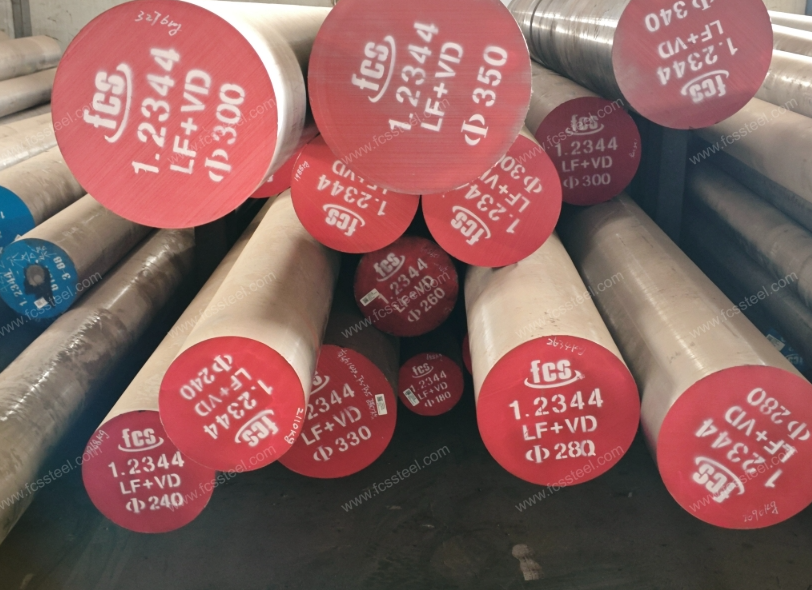
1.2344 is a chromium-molybdenum-vanadium hot work tool steel, standardized under DIN and equivalent to AISI H13 in the American classification system. It is highly valued for:
- Excellent toughness
- Resistance to thermal fatigue
- Ability to maintain strength at elevated temperatures
- Good hardenability and dimensional stability
These qualities make it one of the most versatile hot work steels, widely used in die casting, extrusion, and forging dies.
What is ESR (Electro-Slag Remelting)?
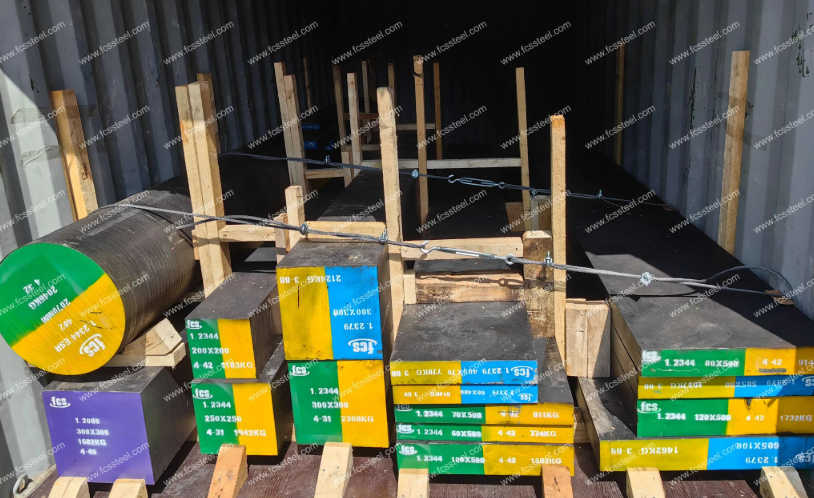
To understand 1.2344 ESR, we must first understand ESR technology. Electro-Slag Remelting is a secondary refining process that significantly improves the quality of steel compared to conventional ingot casting.
How ESR Works:
- A consumable electrode (the primary steel ingot) is remelted under a molten slag bath.
- The molten steel droplets pass through the slag, which removes impurities and inclusions.
The remelted steel solidifies under controlled conditions, producing a refined ingot with improved cleanliness and homogeneity.
Benefits of ESR Steel:
- Cleaner microstructure with fewer inclusions
- Improved toughness and fatigue resistance
- Better polishability and surface finish
- Uniform carbide distribution
- Enhanced resistance to cracking during service
When applied to 1.2344, ESR technology creates a premium tool steel known as 1.2344 ESR or H13 ESR.
Properties of 1.2344 ESR Tool Steel

Compared with standard 1.2344, the ESR version demonstrates superior properties that make it ideal for demanding tooling applications.
- Hardness (after heat treatment): 44–52 HRC.
- Excellent Toughness: Lower risk of chipping or cracking under high stress.
- High Thermal Fatigue Resistance: Maintains strength in repeated heating/cooling cycles.
- Superior Wear Resistance: Refined carbides extend tool life in abrasive conditions.
- Better Polishability: Ideal for plastic molds requiring mirror finishes.
- Dimensional Stability: Reduced risk of distortion after heat treatment.
Applications of 1.2344 ESR
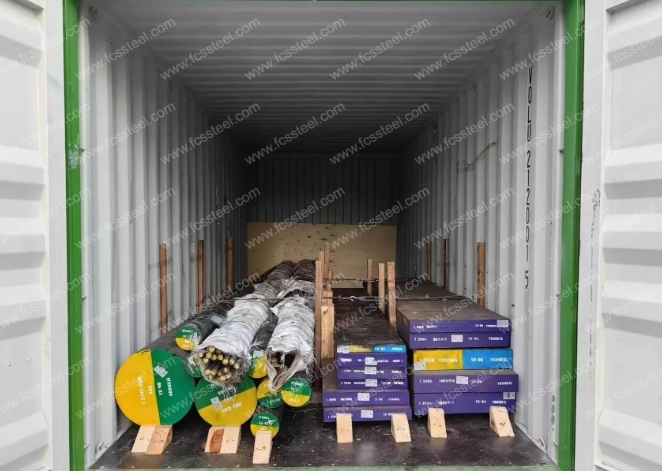
Due to its enhanced quality, 1.2344 ESR is widely used in industries where tool steels are subjected to thermal shock, high wear, and mechanical stress.
Typical Applications:
- Die Casting Dies: Aluminum, zinc, and magnesium die-casting molds benefit from its thermal fatigue resistance.
- Extrusion Dies: Ideal for hot extrusion of aluminum, copper, and magnesium alloys.
- Hot Forging Dies: Superior toughness reduces cracking under repeated impact.
- Plastic Injection Molds: Particularly suitable for molds requiring high polishability for optical or transparent components.
- Pressure Die Casting Inserts & Sleeves: Longer service life due to reduced cracking.
In short, 1.2344 ESR is the premium solution for manufacturers looking to reduce downtime, extend tool life, and improve product quality.
1.2344 ESR vs Conventional 1.2344
While both steels share the same chemical composition, the ESR process gives 1.2344 ESR distinct advantages.
| Property | Conventional 1.2344 | 1.2344 ESR |
|---|---|---|
| Microstructure | Standard, with inclusions | Cleaner, uniform, inclusion-free |
| Toughness | Good | Excellent |
| Thermal Fatigue Resistance | High | Higher |
| Wear Resistance | Strong | Superior |
| Polishability | Limited | Excellent |
| Service Life | Standard | Extended |
This comparison shows why more industries are shifting toward ESR versions despite higher upfront costs—the long-term performance and cost savings make it the smarter investment.
Key Equivalent Grades for 1.2344 ESR
- United States: H13 (ASTM A681)
- Germany/Europe: X40CrMoV5-1 (DIN/EN 10027-2)
- China: 4Cr5MoSiV1 (GB/T 1299-2000)
- Japan: SKD61 (JIS)
Below is a quick comparison table highlighting each major equivalent and its main certification:
| Region | Equivalent | Standard |
|---|---|---|
| United States | H13 | ASTM A681 |
| Germany | X40CrMoV5-1 | EN 10027-2/DIN |
| China | 4Cr5MoSiV1 | GB/T 1299-2000 |
| Japan | SKD61 | JIS |
Reference: Typical Chemical Composition
Here’s a typical international composition window for 1.2344 / H13 / SKD61:
| C | Si | Mn | P | S | Cr | Mo | V |
|---|---|---|---|---|---|---|---|
|
0.35–0.42 |
0.80–1.20 |
0.25–0.50 |
<0.03 |
<0.02 |
4.80–5.50 |
1.20–1.50 |
0.85–1.15 |
Why Source 1.2344 ESR from FCS Tool Steel?
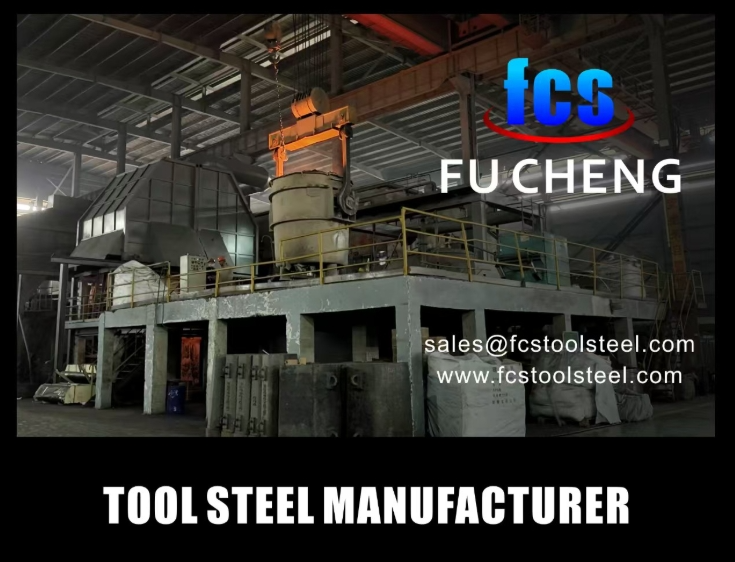
When it comes to sourcing high-performance steels, choosing the right supplier is as important as choosing the grade. FCS Tool Steel is a trusted partner for global buyers, offering both technical expertise and supply chain reliability.
FCS Product Advantages for 1.2344 ESR:
1.Premium ESR Quality
All 1.2344 ESR steels are refined through Electro-Slag Remelting, ensuring exceptional toughness and consistency.
2.Wide Dimensional Range
Available in round bars, flat bars, and plates.
- Round bar: Ø 10 mm – Ø 65 mm/70-700 mm
- Flat bar: Thickness 8–45 mm/50-500 mm, width 50-1000/1500 mm
- Custom cut-to-size available
3.Delivery Conditions
Supplied annealed for easy machining or pre-hardened depending on customer needs.
4.Global Supply & Logistics
Fast shipment to Europe, Asia, North America, and the Middle East.
5.Bulk Order Advantages
Competitive pricing tailored for wholesalers, distributors, and stockists.
6.Quality Certification
Every batch comes with mill test certificates, hardness reports, and traceability.
7.Technical Support
Heat treatment guidance and machining recommendations provided by in-house experts.
By partnering with FCS Tool Steel, buyers gain access to not just high-grade steel but also a dependable supply chain solution—a crucial factor for bulk purchasers and long-term industrial contracts.
Why Industries Prefer 1.2344 ESR Today
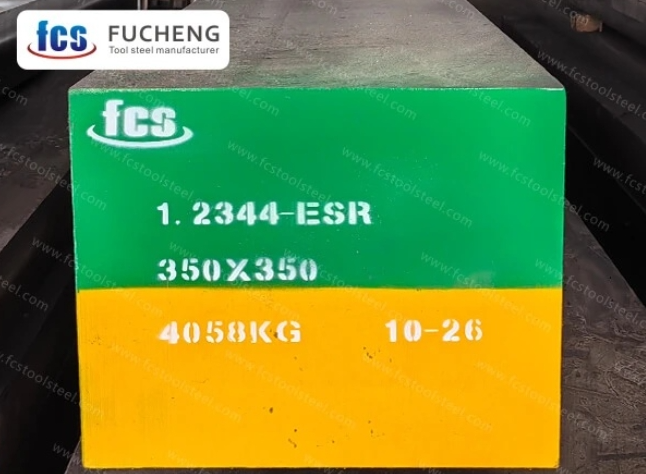
The shift toward ESR-refined tool steels reflects modern manufacturing’s demand for:
- Higher productivity
- Reduced tool maintenance costs
- Improved part quality (polished mold surfaces, reduced defects)
- Longer service life of dies and molds
In competitive industries like automotive, aerospace, and electronics, these benefits directly translate into cost savings and efficiency improvements. 1.2344 ESR meets these needs more effectively than conventional hot work steels.
Conclusion
1.2344 ESR tool steel is not just another grade—it is a premium version of H13 that combines wear resistance, toughness, and polishability with the enhanced purity of ESR technology. This makes it the steel of choice for die casting, extrusion, hot forging, and high-precision molds.
For wholesalers, stockists, and distributors, sourcing from a reliable partner like FCS Tool Steel ensures access to premium ESR-quality products, competitive bulk pricing, and dependable global logistics.
If your business depends on delivering high-performance tool steels, 1.2344 ESR from FCS Tool Steel is the smart investment that guarantees quality, reliability, and long-term customer satisfaction.
